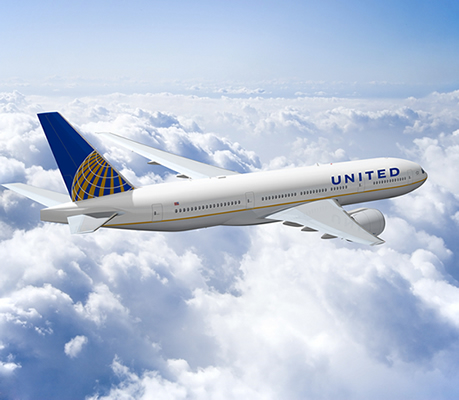
A few years ago, the concept of “too big to fail” meant nothing to most people, but several bailouts and a one massive recession later, the term seems as commonplace as “would you like fries with that?” Now, some are worried that the mega-merger between United and Continental could result in an airline industry dominated by huge carriers that are simply too large to live without.
The New York Times reports that at a hearing focused on the United merger in Washington yesterday, William J. McGee, a consultant with the Consumer’s Union, which publishes Consumer Reports magazine, made the case: “Just as we have seen with the banks, with financial services companies and with automobile manufacturers, we are now seeing the domestic airline industry evolving into an oligopoly of 800-pound gorillas.
“In the past, Wall Street investors and executives at competing airlines have decried any form of assistance to financially struggling carriers, asserting the government should let the marketplace decide which airlines survive and which airlines fail. In the future, these same parties will reverse that argument claiming that a megacarrier such as United-Continental will be too big to fail. And they will be right.”
The man has a point. Along with Delta, a merged United would control just over 40 percent of the domestic air travel market—that’s a lot of real estate for just two carriers. If just one of Delta or United succumbed to some form of economic calamity, the resulting void in domestic air service would be severe. And while it’s difficult to contemplate a circumstance that would vanquish both Delta and United, it goes without saying that the loss of both airlines would be disastrous.
More likely than either of those scenarios is one where the threat of bankruptcy at either carrier is imminent enough to call for government action, as we saw in 2008 with the banking industry. What then? Should the government step in to save an airline that controls one-fifth of domestic air travel, and that provides a major percentage of overseas service for Americans? Should the government allow said carrier to wither on the vine? Do we want to have to answer these questions?
The flip side is that these mergers are meant to provide financial stability and prevent the sort of financial distress most major carriers are currently facing. Mergers allow airlines to consolidate routes and reach more destinations. Put more usefully, mergers allow them to save money and bring in new revenue. Heck, the airline’s executives say they don’t even plan on raising fares! Sounds like a recipe for long-term success, doesn’t it?
The way I see it, United will probably be fine—but the key word there is “probably,” and that’s a somewhat uncomfortable concept when talking about the nation’s largest carrier. Do we really want to be asking ourselves, “what if … ?”
We hand-pick everything we recommend and select items through testing and reviews. Some products are sent to us free of charge with no incentive to offer a favorable review. We offer our unbiased opinions and do not accept compensation to review products. All items are in stock and prices are accurate at the time of publication. If you buy something through our links, we may earn a commission.
Related
Top Fares From
Today's Top Travel Deals
Brought to you by ShermansTravel
Shop and Save with Country Inns...
Patricia Magaña
 Hotel & Lodging Deals
Hotel & Lodging Deals
$229 -- Chicago: Discounted Rates and...
Francesca Miele
 Hotel & Lodging Deals
$229+
Hotel & Lodging Deals
$229+
$188 -- Honolulu: Save on Oceanview...
Abigail Lamay
 Hotel & Lodging Deals
$188+
Hotel & Lodging Deals
$188+



